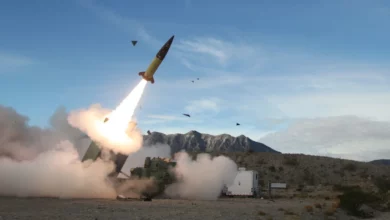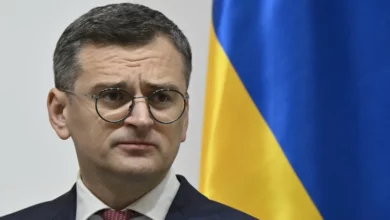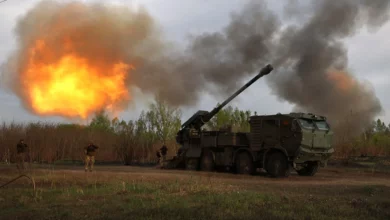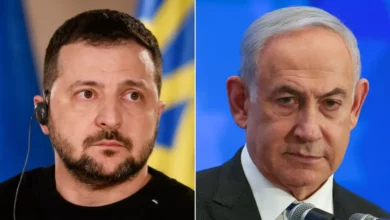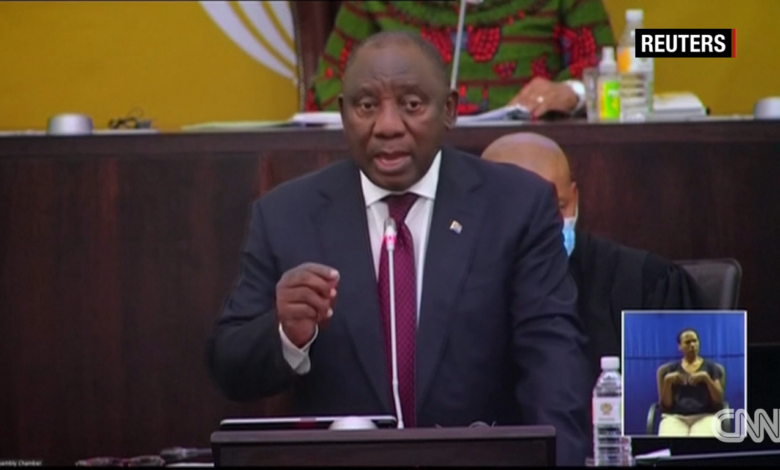
Lagos, Nigeria (CNN) – Nelson Mandela was once asked why he still had relationships with, among others, Fidel Castro and Yasser Arafat, the Cuban and Palestinian leaders who had been branded terrorists by Western powers. The revered South African statesman replied that it was a mistake “to think that their enemies should be our enemies.”
This stance has largely typified some African nations’ response to the Russia-Ukraine war. Across the continent, many appear hesitant to risk their own security, foreign investment and trade by backing one side in this conflict.
While there has been widespread condemnation of the attacks on Ukrainian civilians and their own citizens fleeing the warzone — from countries such as Ghana, Nigeria, Kenya — there has been a much more muted response from some key African nations.
Countries on the continent find themselves in a delicate position and will not want to get drawn into proxy battles, says Remi Adekoya, associate lecturer at England’s University of York.
“There’s a strong strand of thought in African diplomacy that says African states should maintain the principle of non-interference and so they shouldn’t get caught up in proxy wars between the East and the West. As some states did get caught up in proxy wars during the Cold War, for instance,” Adekoya told CNN.
One influential voice that has made it clear he will not make an enemy out of Russian leader Vladimir Putin is South African President Cyril Ramaphosa.
While addressing his country’s parliament Thursday, he said: “Our position is very clear … there are those who are insisting that we should take a very adversarial stance and position against, say Russia. And the approach that we have chosen to take … is we are insisting that there should be dialogue.”
After initially releasing a statement calling for Russia to immediately pull its forces out of Ukraine, South Africa has since laid the blame for the war directly at NATO’s doorstep for considering Ukraine’s membership into the military alliance, which Russia is against.
“The war could have been avoided if NATO had heeded the warnings from amongst its own leaders and officials over the years that its eastward expansion would lead to greater, not less instability in the region.” Ramaphosa said in parliament Thursday.
Former South African President Jacob Zuma also earlier issued a statement saying Russia “felt provoked.”
“Putin has been very patient with the western forces. He has been crystal clear about his opposition of the eastern expansion of … NATO into Ukraine … and is on the record about the military threat posed to Russia by the presence of the forces … it looks justifiable that Russia felt provoked,” Zuma said in a statement issued by his foundation on March 6.
South Africa has strong ties to Russia and Ramaphosa has written about being approached to be a mediator in the conflict given its membership of BRICS — a group of emerging economies comprising Brazil, Russia, India, China and South Africa.
The ties between the two countries also date back to apartheid times when the former Soviet Union supported South Africa and the African National Congress party in their liberation struggles. “Those favors have not been forgotten,” said Adekoya.
South Africa was one of 17 African nations to abstain on the UN resolution demanding that Russia immediately withdraw from Ukraine on March 2. It took a similar stance during Putin’s annexation of Crimea in 2014.
Nigeria and Egypt were among the 28 African nations that voted to condemn Russia, while eight others didn’t submit a vote. Eritrea was the only African country that outrightly voted against the resolution.
Zimbabwe’s foreign ministry said in a statement it was unconvinced that the UN resolution was driven towards dialogue, rather “it poured more fuel to the fire, thus complicating the situation.”
‘Strongman leadership’
Many of the countries that abstained from the UN vote are authoritarian regimes. They see Putin’s unilateral decision to invade Ukraine as a show of power and ego that they can appreciate and align with, Yetunde Odugbesan-Omede, a political analyst and professor at New York’s Farmingdale State College, told CNN.
One of those who have spoken out prominently in support of the Russian leader is Lt. Gen. Muhoozi Kainerugaba, the influential son of Ugandan President Yoweri Museveni.
His father has ruled Uganda with an iron fist for 36 years and there has been speculation that Kainerugaba is a would-be successor when the 78-year-old Museveni eventually stands down.
Kainerugaba tweeted that: “The majority of mankind (that are non-white) support Russia’s stand in Ukraine. Putin is absolutely right!”
Some African countries have also hesitated in speaking out against Russia because they want to “keep their options open if they face existential threats or some kind of revolution in their own country in the future,” said Adekoya.
“They saw Putin keep Assad in power in Syria because if not for Russia’s intervention, Assad’s regime would have fallen long ago,” he added.
Adekoya also pointed out that some of the muted response stems from what is perceived as Western hypocrisy.

